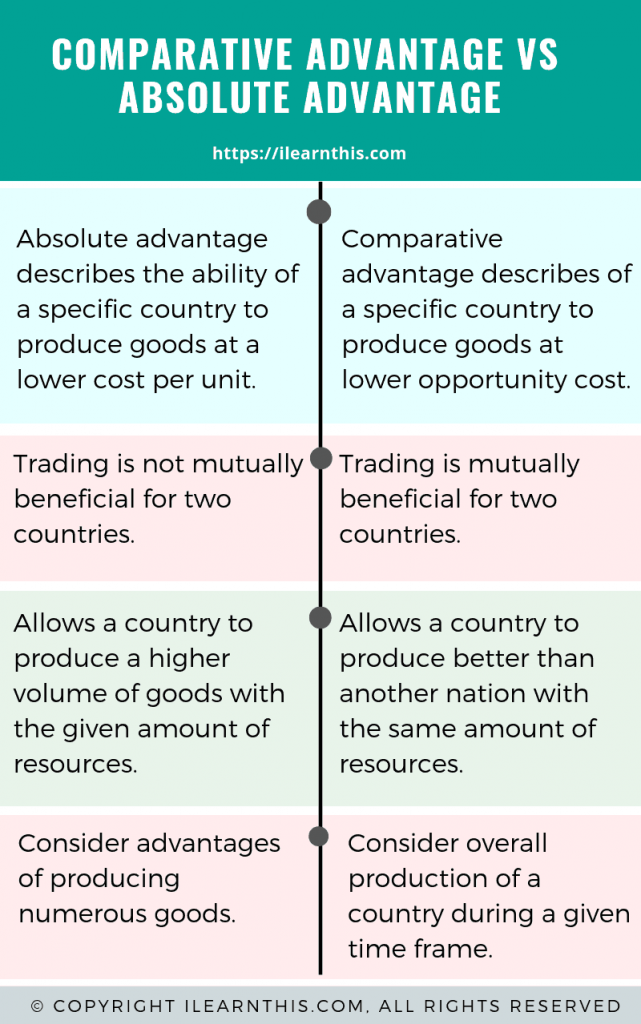Comparative Advantage
Economists use the term comparative advantage when describing the opportunity cost of two producers. The producer who has a smaller opportunity cost of producing a good.
So, who has to give up less of other goods to produce it is said to have a comparative advantage in producing that good.
In other words, Comparative advantage is what you do best while also giving up the least.
Comparative Advantage example,
if you’re a great Programmer and a great writer, your comparative advantage is a programming.
That’s because you’ll make more money as a programmer.
You can hire an hour of writer services for less than you would make doing an hour of a programming.
Your opportunity cost of writing is high. Every hour you spend writing is an hour’s worth of lost revenue you could have gotten on a programming job.
Absolute Advantage
Economists use the term absolute advantage when comparing the productivity of one person, firm, or nation to that of another. The producer that requires a smaller quantity of inputs to produce a good is said to have an absolute advantage in producing that good.
In Short,
Absolute Advantage Example
You’re better than everyone else in the city at both programming and writing. But programming is your comparative advantage. That’s because you only give up low-cost writing jobs to pursue your well-paid programming career.
Competitive advantage is what makes you more attractive to consumers than your competitors.
For example, you are in demand to provide both programming and writing services. But it’s not necessarily because you do them better (absolute advantage). It’s because you charge less or can do both tasks at the same time.
Comparative Advantage Vs Absolute Advantage
Absolute advantage is anything a country does more efficiently than other countries.
Nations that have an abundance of Natural resources, farmland, fresh water have an absolute advantage in raw minerals, agriculture.
Just because a country has an absolute advantage in an industry doesn’t mean that it will be its comparative advantage.
That depends on what the trading opportunity costs are. Say its neighbor country has no coal mines but plenty of farmland and fresh water.
The neighbor is willing to trade a lot of food in exchange for coal.
Now the first country has a comparative advantage in coal. It can get more food from its neighbor by trading it for coal than it could produce on its own.

